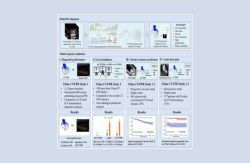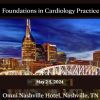When a driver experiences an unexpected cardiac event on the road, he/she is not the only one at risk. Fellow passengers and motorists may also face death or serious injury during such an event.
Michigan Medicine researcher Kayvan Najarian, PhD was approached by Toyota with statistics that underscored the dangers associated when a person behind the wheel has a medical emergency. The statistics showed that a large number of traffic incidents are caused by medical conditions while driving, in particular cardiovascular events such as myocardial infarction and myocardial ischaemia.
Toyota's goal was to find ways to avoid such incidents altogether by introducing technology that can monitor and analyse the physiology of the person driving and to be able to predict if they are going to have any adverse cardiac events.
Najarian and his research team accepted the project and with a grant, set about to study what types of computational systems in conjunction with physiological patient monitors could be implemented into vehicles to achieve the safety objective. The researchers identified challenges, potential solutions, hardware options and algorithmic approaches that could be used to create a system that could ideally be placed within the vehicle. The ultimate goal was to come up with a system that would predict the occurrence of any adverse cardiac events in real time.
There were some initial challenges with this research. There was no way that clinical-grade monitoring devices could be used in the vehicle. Only a high-quality monitoring device would serve the purpose as it would be able to do the desired task despite the in-vehicle noise and would be able to register the driver's ECG without being too large or obtrusive. A car is not exactly an ICU and for this system to work, there would be a need for robust and advanced algorithms.
For now, the researchers are gathering physiological data from the driver using heart monitors that have been approved by the FDA. The monitors will be placed on the driver's chest and will analyse physiological data in real time. In the meantime, the algorithms and hardware options will continue to be tested. Results are expected to be reported in 2020.
Najarian believes in the research and says that it will be even more critical as the senior population grows. "When we analyzed crash statistics already reported by different agencies, we found that drivers 65 years of age and older have a lot of medical-related issues that are related to vehicle crashes," Najarian says. "We can infer from that information that there could be a higher number of crashes in the future as the population is aging.By 2030, there will be an increased number of older-age drivers, which could increase the number of medical events happening behind the wheel. That's motivation for us to start exploring this important topic now."
Source: Michigan Medicine - University of Michigan
Image Credit: Pixabay
Latest Articles
myocardial infarction, cardiac event, Heart Monitoring, traffic incidents, myocardial ischaemia.
Statistics show that a large number of traffic incidents are caused by medical conditions while driving, in particular cardiovascular events such as myocardial infarction and myocardial ischaemia.



























